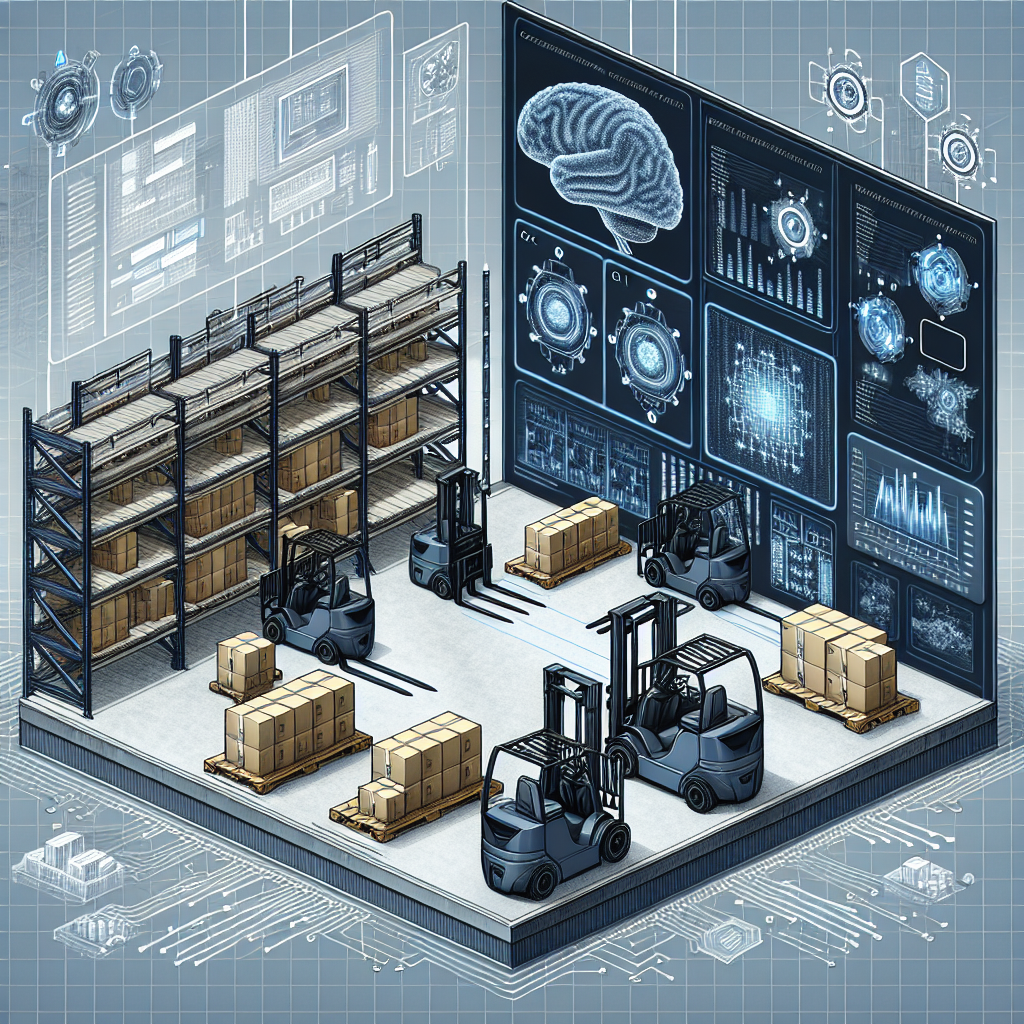The Impact of AI on Inventory Control and Management in Logistics
In today’s fast-paced world, efficient inventory control and management are crucial for the success of any logistics operation. With the rise of artificial intelligence (AI) technology, the way businesses handle their inventory has been transformed. AI has revolutionized the way companies track, manage, and optimize their inventory, leading to increased efficiency, cost savings, and improved customer satisfaction. In this article, we will explore the impact of AI on inventory control and management in logistics and how it is shaping the future of the industry.
AI in Inventory Control and Management
AI technology has enabled companies to automate and streamline their inventory control processes, leading to better decision-making and increased accuracy. By leveraging machine learning algorithms, AI systems can analyze large amounts of data in real-time, detect patterns, and make predictions about future inventory needs. This allows businesses to optimize their inventory levels, reduce stockouts, and minimize excess inventory, leading to cost savings and improved efficiency.
One of the key benefits of AI in inventory control is its ability to forecast demand accurately. By analyzing historical sales data, market trends, and other factors, AI systems can predict future demand with a high degree of accuracy. This allows businesses to optimize their inventory levels, ensuring that they have the right amount of stock on hand to meet customer demand without overstocking. This can lead to significant cost savings by reducing the need for excess inventory and minimizing the risk of stockouts.
AI technology also enables companies to optimize their supply chain, leading to faster delivery times and improved customer satisfaction. By analyzing data from suppliers, transportation providers, and other sources, AI systems can identify bottlenecks in the supply chain and suggest ways to improve efficiency. This can lead to reduced lead times, lower transportation costs, and better overall performance.
Another key benefit of AI in inventory control is its ability to automate repetitive tasks, such as inventory tracking and ordering. AI systems can monitor inventory levels in real-time, track the movement of goods throughout the supply chain, and automatically reorder stock when inventory levels are low. This can help businesses streamline their operations, reduce the risk of human error, and improve overall efficiency.
Overall, AI technology has had a transformative impact on inventory control and management in logistics. By enabling companies to forecast demand accurately, optimize their supply chain, and automate repetitive tasks, AI has helped businesses improve efficiency, reduce costs, and enhance customer satisfaction.
FAQs
Q: How does AI technology improve inventory control in logistics?
A: AI technology improves inventory control in logistics by enabling companies to forecast demand accurately, optimize their supply chain, and automate repetitive tasks. By analyzing data in real-time, AI systems can make predictions about future inventory needs, identify bottlenecks in the supply chain, and automatically reorder stock when inventory levels are low.
Q: What are the benefits of using AI in inventory management?
A: Some of the key benefits of using AI in inventory management include improved demand forecasting, optimized supply chain, reduced costs, and increased efficiency. AI technology enables companies to make better decisions about their inventory levels, leading to cost savings and improved customer satisfaction.
Q: How can businesses implement AI technology in their inventory control processes?
A: Businesses can implement AI technology in their inventory control processes by investing in AI software and tools, training their employees on how to use AI systems, and integrating AI technology into their existing inventory management systems. By leveraging AI technology, businesses can improve their inventory control processes and stay competitive in today’s fast-paced logistics industry.
In conclusion, AI technology has had a transformative impact on inventory control and management in logistics. By enabling companies to forecast demand accurately, optimize their supply chain, and automate repetitive tasks, AI has helped businesses improve efficiency, reduce costs, and enhance customer satisfaction. As AI technology continues to evolve, we can expect to see even more innovations in inventory control and management that will further revolutionize the way businesses handle their inventory.

